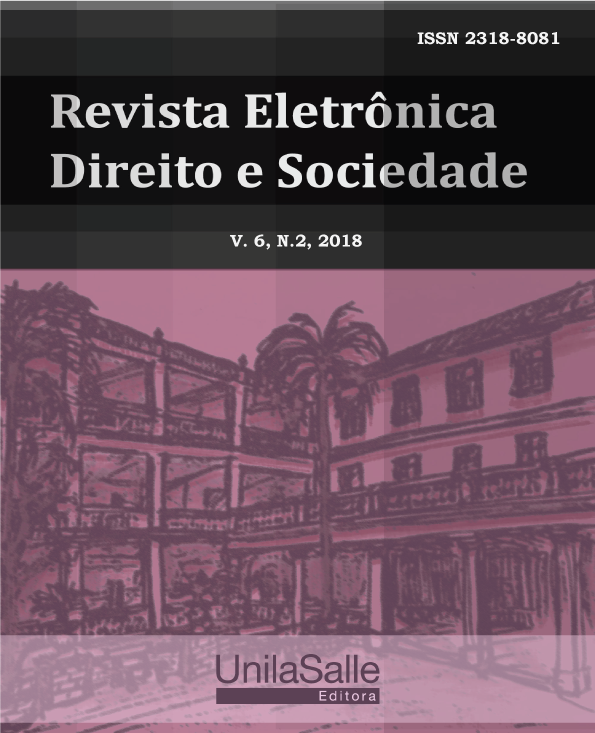Right to information in the face of CRISPR/Cas9 gene drive biotechnology risks to genetic heritage in the Brazilian legal system.
DOI:
https://doi.org/10.18316/redes.v6i2.5124Keywords:
Patrimônio Genético, CRISPR/Cas9 Gene Drive, Riscos Biotecnológicos, Informação, Transdisciplinaridade.Abstract
Assim como tudo o que é humano, a ciência não é neutra. Ao constatar-se as potencialidades do uso da biotecnologia CRISPR/Cas9 disponível para pesquisa científica, nota-se sua vinculação com os riscos de dano ao patrimônio genético e ao ecossistema. O presente trabalho tem como foco principal estudar a importância da garantia de acesso à informação desde o uso do conhecimento tecnocientífico (pesquisa científicas financiadas pelas agências de fomento CAPES, CNPq, FAPERGS e FAPESP) até a avaliação e gestão biotecnológica (atuação da CTNBio), cuja incumbência compete aos órgãos vinculados ao Estado. Utilizando-se o método de abordagem hipotético-dedutivo, pretendemos, assim, estudar a tutela jurídica do patrimônio genético enquanto bem ambiental, pondo a biotecnologia CRISPR/Cas9 em um plano histórico-evolutivo em face dos riscos biotecnológicos; recorrendo-se à técnica de análise de textos ou dados denominada Mineração de Textos, analisar crítico e empiricamente o estado da arte do uso da biotecnologia CRISPR/Cas9 no Brasil, além de destacar aplicações biotecnológicas de CRISPR/Cas9 Gene Drive como inclusivas ou problemáticas ao sistema jurídico brasileiro a partir da interpretação jurídica tópico-sistemática, fazendo-se uso de pesquisa documental e revisão bibliográfica de textos doutrinários em periódicos científicos analisando a temática proposta, de convenções internacionais, legislação nacional e decisões judiciais. Por fim, enfatiza-se a importância da justificação pública pela ciência das escolhas biotecnológicas em face dos riscos ambientais ao patrimônio genético e ecossistema por intermédio da educação ambiental como fator pedagógico, bem como por meio da difusão informacional qualitativa ao público em geral, pensando uma responsabilização compartilhada entre Estado e coletividade sobre o meio ambiente, priorizando-se uma leitura transdisciplinar com vistas à superação de fronteiras entre disciplinas para que o conhecimento aprofundado do objeto de estudo seja possível.
Downloads
Published
Issue
Section
License
Authors who submit their manuscripts for publication in the “REDES” Magazine agree to the following terms:
The authors claim to be aware that they retain copyright by giving “REDES” the right to publish.
The authors declare to be aware that the work submitted will be licensed under the Creative Commons Non-Commercial Attribution License which allows article sharing with acknowledgment of authorship and publication in this journal.
The authors declare to be aware that by virtue of the articles published in this journal have free public access.
The authors declare, under the penalty of the law, that the text is unpublished and original and that they are aware that plagiarism has been identified, plagiarized authors will be informed - willingly, to take legal action in the civil and criminal sphere - and, plagiarists will have their access to the magazine blocked.
The authors state that - in case of co-authoring - all contributed significantly to the research.
Authors are obliged to provide retractions and (or) corrections of errors in case of detection.
The authors are obliged not to publish the text submitted to “REDES” in another electronic journal (or not).
The Electronic Journal Law and Society - REDES - is licensed under a Creative Commons License. Attribution-NonCommercial 4.0 International.Based on work available at "http://revistas.unilasalle.edu.br/index.php/redes/about/submissions#copyrightNotice".
Permissions in addition to those granted under this license may be available at http://creativecommons.org/.

